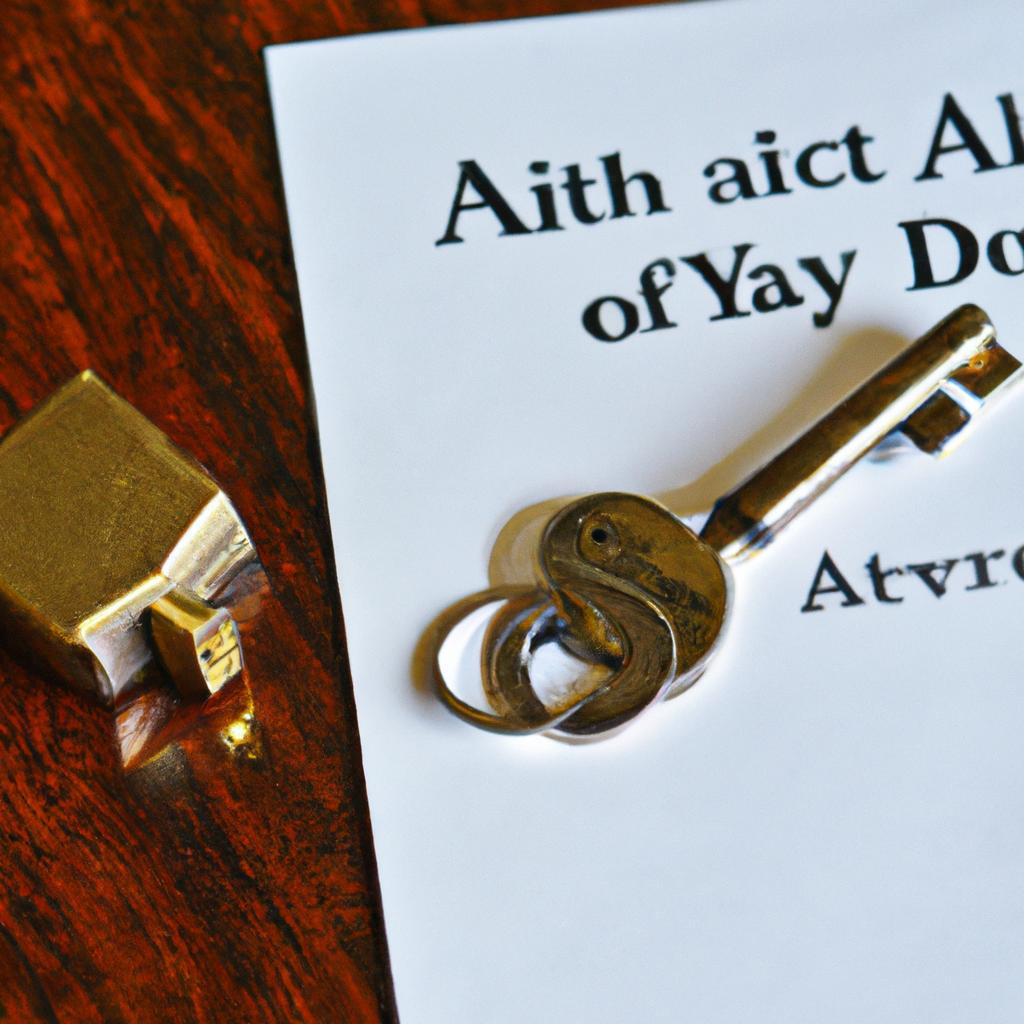As seasoned legal professionals at Morgan Legal Group, based in the bustling metropolis of New York City, we are well-versed in all matters pertaining to estate planning, probate, elder law, Wills, and trusts. One important tool that we often utilize in these areas is the small asset affidavit. This document serves as a crucial instrument in simplifying the transfer of assets after an individual’s passing. In this article, we will delve into the intricacies of the small asset affidavit, shedding light on its purpose, significance, and implications within the realm of estate planning. Join us as we explore this essential legal instrument and its role in ensuring a seamless transition of assets for our clients.
Understanding the Purpose and Scope of a Small Asset Affidavit
When dealing with the complexities of estate planning, it is crucial to understand the purpose and scope of a small asset affidavit. This legal document serves as a sworn statement declaring the value of a deceased individual’s assets, typically those that fall below a certain threshold. By providing a detailed inventory of these assets, the small asset affidavit allows for a streamlined probate process, saving time and resources for all parties involved.
Furthermore, the small asset affidavit can help expedite the distribution of assets to rightful beneficiaries, ensuring that the decedent’s wishes are carried out in a timely manner. It is important to note that each state may have specific requirements and limitations regarding small asset affidavits, so it is advisable to consult with an experienced estate planning attorney to navigate this process effectively. By , individuals can take proactive steps to protect their assets and simplify the probate process for their loved ones.

Key Considerations When Drafting a Small Asset Affidavit
When drafting a small asset affidavit, there are several key considerations that must be taken into account to ensure that the affidavit is accurate and legally binding. One important consideration is to accurately list all of the decedent’s assets, including bank accounts, real estate, vehicles, and personal property. It is important to provide detailed descriptions of each asset, including account numbers, titles, and any other relevant information.
Another key consideration is to ensure that the affidavit is signed and notarized in accordance with state laws. The affidavit must be signed by the affiant, who is typically the decedent’s heir or beneficiary, in the presence of a notary public. Additionally, the affidavit should include a statement declaring that the affiant is signing the document voluntarily and understands the consequences of making false statements.

Navigating Potential Challenges and Pitfalls in Completing a Small Asset Affidavit
can be a daunting task, but with the right guidance and expertise, it can be achieved successfully. One of the main challenges that individuals may face is ensuring that all assets are correctly identified and accounted for in the affidavit. This requires meticulous attention to detail and thorough documentation of all personal property, real estate, bank accounts, and other assets that fall within the specified threshold.
Another common pitfall to be aware of is ensuring that the Small Asset Affidavit is completed accurately and in compliance with state laws and regulations. Failure to adhere to the requirements set forth by the governing authorities can result in delays, legal complications, and possible rejection of the affidavit. It is crucial to seek the assistance of a knowledgeable legal professional, such as the experts at Morgan Legal Group, to ensure that all necessary steps are taken and that the affidavit is prepared correctly the first time. Trust our team to guide you through the process with precision and expertise.
| Assets | Value |
|---|---|
| Real Estate | $250,000 |
| Bank Accounts | $15,000 |
| Personal Property | $10,000 |

Expert Recommendations for Safeguarding Your Assets through a Small Asset Affidavit
When it comes to safeguarding your assets through a Small Asset Affidavit, there are several expert recommendations to keep in mind. First and foremost, it is crucial to accurately assess the value of your assets and ensure that they fall within the designated threshold for a Small Asset Affidavit. This will help streamline the process and avoid any complications down the line.
- Properly document all of your assets, including bank accounts, real estate, vehicles, and personal belongings.
- Consider consulting with a legal professional who specializes in estate planning to ensure that your Small Asset Affidavit is properly executed.
- Regularly review and update your Small Asset Affidavit to reflect any changes in your assets or financial situation.
Furthermore, it is important to keep detailed records of all transactions involving your assets and to store them in a secure location. By following these expert recommendations and taking proactive steps to safeguard your assets, you can help protect your financial interests and ensure a smooth transfer of assets in the future.
| Asset | Value |
| Bank Accounts | $50,000 |
| Real Estate | $200,000 |
| Vehicles | $30,000 |
Q&A
Q: What is a small asset affidavit?
A: A small asset affidavit is a legal document that allows an individual to declare their assets and income when they are below a certain threshold, typically for the purpose of qualifying for a fee waiver or reduced court fees.
Q: Who can use a small asset affidavit?
A: Usually, individuals who have limited financial resources and are unable to afford standard court fees or filing costs can use a small asset affidavit as a way to demonstrate their financial situation.
Q: What information is typically included in a small asset affidavit?
A: A small asset affidavit typically includes details such as the individual’s income, expenses, assets, and liabilities. It may also require the individual to provide information about any government assistance they receive or other sources of income.
Q: How can a small asset affidavit benefit someone?
A: By filing a small asset affidavit, an individual may be able to qualify for a waiver of court fees or other costs associated with legal proceedings. This can be especially helpful for individuals facing financial hardship.
Q: Are there any limitations to using a small asset affidavit?
A: While a small asset affidavit can be a useful tool for individuals with limited financial resources, it is important to note that false or inaccurate information provided in the affidavit can lead to legal consequences. It is crucial to be honest and thorough when completing the document.
Q: Where can someone obtain a small asset affidavit form?
A: Small asset affidavit forms can typically be obtained from the court where the individual is filing their legal documents. In some cases, the form may be available online on the court’s website. It’s important to make sure you are using the correct form for your specific jurisdiction.
Wrapping Up
In conclusion, the small asset affidavit can be a valuable tool for individuals who have minimal assets and want to streamline the probate process for their loved ones. By filling out this form, you can ensure that your assets are properly distributed according to your wishes without the need for a lengthy and expensive legal process. Whether you are creating an estate plan or simply looking to simplify things for your family, the small asset affidavit could be the solution you’ve been looking for. Take the time to consider this option and see if it is the right fit for your situation. Your loved ones will thank you for it in the long run.

